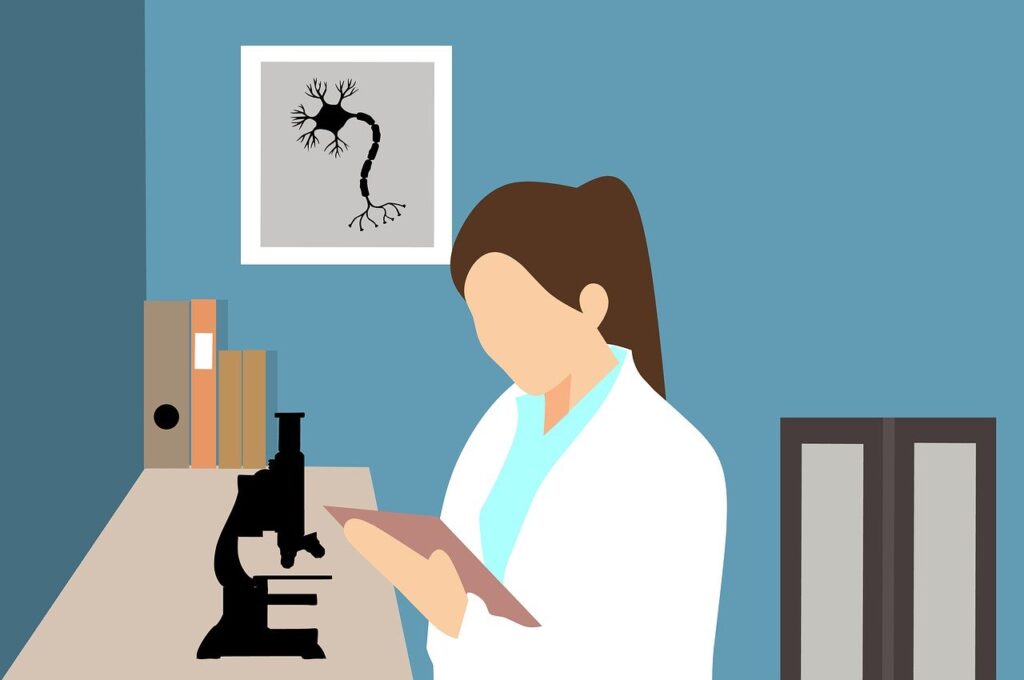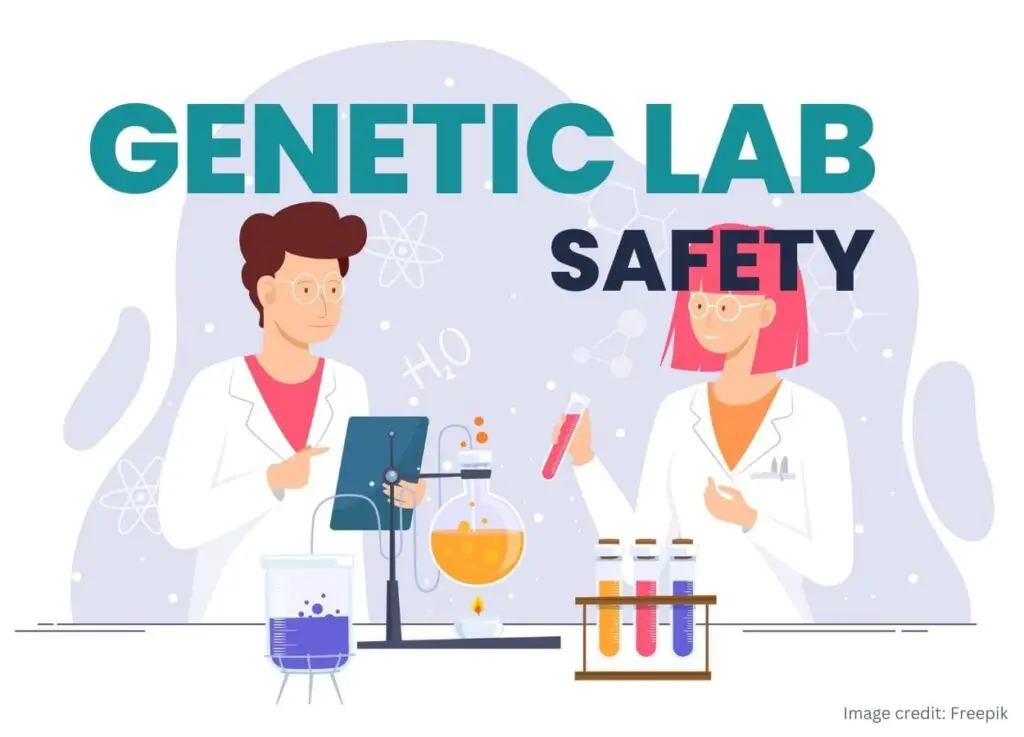“ROI is so crucial for DNA testing labs and is hard to achieve which eventually shut down many labs across the globe. Here are some takeaways from my side which help you to uplift or continue your ROI for a longer period of time.”
DNA testing facilities bloomed during the COVID time. Certainly, after the first COVID wave. New labs were opened and may get upgraded. To my knowledge, people had made an insanely huge amount of money during this rally.
It was a win-win situation for all the labs because the COVID RT-PCR test was compulsory in all countries and for all. Soon after, the test applications started reducing, gradually. And now literally no one is talking about the RT-PCR.
The testing numbers for RT-PCR are now nearly zero. Labs have just stopped, have a good day. The era is likely to be over. As I said, people made crazy money but they don’t know that one day the rally will stop and everything will become as was previously.
Think about someone who had started a genetic testing lab only for COVID testing. There’s no future for them and perhaps will end soon. They might get good returns on investment but now no more returns for them.
Sadly, it was like a stock market bloom, many invested and earned while many lost everything. I know some of them and that is why I am telling it. So what is the moral of the story?
Only those who can get constant returns and get their DNA testing labs running, who know tests other than only COVID RT-PCR. Meaning, those having a sheer knowledge of genetics and genetic testing.
In this article, I will explain some of the takeaways that will tell you if your genetic lab is going or will go well in the future or not. And will it get a good ROI in the near future? Let’s check it out.
Related article: Setup a Genetic Testing Lab in 12 Easy Steps.
Key Topics:
How to Increase ROI for DNA Testing Labs?
Should have DNA testing facilities
COVID RT-PCR testing is a different thing while genetic or DNA testing, on the other hand, is totally a different thing– in many aspects. If you categorize your lab into a “genetic lab” It should have these testing facilities.
And if you are only focusing on a DNA test, probably the first column is more than sufficient. In this scenario, you are letting much money be left on the table.
Take a look at the list here:
| DNA testing facilities | Chromosome testing facilities |
| Testing for inherited genetic disorders. | Chromosomal abnormality testing |
| Testing for some non-inherited disorders | Karyotyping |
| DNA testing– DNA fingerprinting, DNA footprinting, DNA barcoding etc. | FISH |
| DNA sequencing-based testing. | Microarray |
| 16s rRNA and 18s rRNA gene-based testing techniques. | Cancer cytogenetics |
| HLA typing | Copy number variation studies |
| Infectious disease testing |
If you are doing all this testing or involved in many of the lists, you can expect good or decent returns against your investments. Note that I have given a general list, if you want a more specific idea and detailed list of testing facilities for a DNA testing lab, you can contact us.
Put simply, to earn more, DNA testing labs should have almost all the genetic testing facilities in their bucket.
Experience and expertise
“The only source of knowledge is the experience” — Einstein once said.
Your DNA testing lab should have enough experienced scientists who must have expertise in specific or many techniques. Keep in mind that one has to grow continuously in these trends and for that, one needs new tests, methods and techniques timely.
If your staff has such potential, then most of the work is done. They will handle everything. An experienced person knows how to deal with things, how to handle load and chaos, how to work efficiently and how to discover new ways to improve the ROI.
When it combines with talent, I mean, expertise, people will do crazy things. I actually know some of them that have developed their own testing methods, literally that no one else does– at least, in India.
Government Regulations
It’s important to know the legal aspect of everything. And it applies to DNA testing labs too. Hire a legal team, you will need it now sometime later, trust me. And set up your testing facilities that follow all the rules and regulations of the country in which you want to set up your lab.
For example, in India, particularly for prenatal testing, there are strict rules and regulations from the government and every testing facility where prenatal testing is involved must have to follow them.
They have to take prior permissions, fill up many forms and submit data timely to the government. In such cases, you have to know everything, in terms of legal procedures. Besides, also go through government policies to start a business, lab, startup or any industry, and follow it.
Checkout if your testing facilities are under government rules and regulations or not.
Accreditations
To become big and earn fat, everything needs accreditations. Your accreditations show your authority and trustworthiness for your business. One good example of universal standards is ISO– everybody knows about the ISO, right. However, genetic labs need different types of accreditations from national and international authorities.
If your business is running across the globe then you should care about some of the international accreditations, like the FDA, for instance. FDA is the international standard for working in biological labs.
If you have FDA approval, it shows that your lab has high working standards, chemicals and utilities are of high quality, the staff is trained enough and results are nearly accurate. Big fat businesses and corporations only trust FDA in various parts of the world.
Likewise, in countries like India NABL (National Accreditation Board for testing and calibration of laboratories) is mandatory. Such national and international accreditations are costly and lengthy processes but give immense returns in the long term.
Do apply for national accreditations first and then international if you wish or require.
Work SOP
The crucial practical parameter for any DNA testing lab is its work SOP— how people are working in a lab. A strong work SOP means a strong working routine and strong outputs every day.
Put simply, work SOP (Standard Operating Procedure) shows the system of your work, continuously, and repeatedly from Switch on to switch off of the instrument. As I mentioned, experienced scientists help develop, establish and implement a working SOP.
It’s, simply, a route map for lab personnel to work in the lab, in routine. To know more about working SOPs and how to develop it, you can contact us. Ideally, the Work SOPs include,
- The working system in the lab.
- SOP to handle and work on every instrument.
- SOP for handling chemicals.
- SOP for a solution and chemical preparation.
- SOP for waste management.
- SOP to handle biological samples.
Sample load management
Trust me the secret to success in the DNA testing lab business is in sample load management. Let’s start with an example. Imagine three different conditions.
- Having 3 different protocols for Thalassemia PCR, sickle PCR and P53 gene mutation go in three separate PCR runs (Approx time 9 hours).
- Having a single run protocol for all these tests which goes in a single PCR run (approx. time < 3 hours).
- Having a single multiplex protocol for Thal and sickle, and a separate protocol for P53 mutation which goes in a single PCR run (again approx time is 3 hours).
In which setup you will save more time and money? Condition 2 and 3, more in condition 3 to be precise. And as you save more time, you can test more and earn more. Meaning by sample workload management, one can earn 2 to 3X more.
That’s a proven and simple mantra for DNA testing labs.
Marketing tactics
Do you know? What makes a difference in ROI for a DNA testing lab? Marketing tactics and strategies, of course. One more time, experienced staff for marketing makes a difference for you. But here is a catch for our scenario.
We can’t rely only on marketing genius. Our’s industry is different, definitely, their experience counts, but we need someone, whose knowledge is razor sharp in genetics as well as have a decent hand in marketing.
One with these skills can only convince a client, doctor or others for testing. I studied the market well and came to the conclusion that the strategies and direct marketing work best for DNA testing laboratories.
Digital marketing, advertisements, social media and TV adverts work? No, for now. Knowing our clients is the key to getting more business in this case. And you know who our clients are, right?
Wrapping up
I already know who is reading this article, and what their interest is. I am an experienced geneticist and successfully helped people in their lab setups. I know the loopholes and the gaps that can’t fill the ROI well.
However, the last thing is that competition in our field is coming, surely, the industry is booming, kind of blasting so it’s hard to get business and will surely become tougher in coming years.
So this suggestion will definitely help aspiring scientists and business owners- who are willing to establish a fully-fledged DNA testing laboratory. For more details, expert advice and consultancy, you can contact me through the mail.
I will be honored to help you. Thanks for reading this article.
Subscribe to our weekly newsletter for the latest blogs, articles and updates, and never miss the latest product or an exclusive offer.




